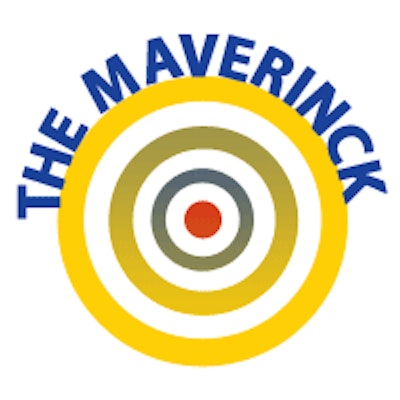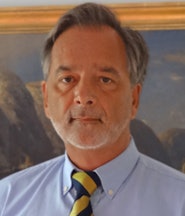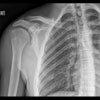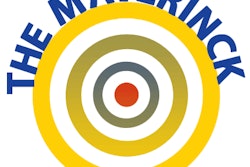
Recently I talked with a colleague about radiology reports, a topic that every so often returns, in particular when new residents start reporting or new colleagues arrive from other hospitals. We went into generalities: Should the end of a report be called "conclusion," "impression," or "summary"? Also, in English, many radiologists "read" images, but shouldn't it be "interpret" images?
Soon we went off the beaten track, from the language in radiology reports to language in medical imaging in general. Do we all speak a common language -- not only the radiologists in one country but those all over Europe? Do we communicate among ourselves and with our colleagues in such a way that everybody gets the same message?
 Dr. Peter Rinck, PhD, is a professor of diagnostic imaging and the president of the Council of the Round Table Foundation (TRTF) and European Magnetic Resonance Forum (EMRF).
Dr. Peter Rinck, PhD, is a professor of diagnostic imaging and the president of the Council of the Round Table Foundation (TRTF) and European Magnetic Resonance Forum (EMRF).When a German radiologist talks about a policlinic and a U.K. or French colleague refers to a polyclinic, do they mean the same thing? They might think so, but in reality they don't. They all work in different health systems. In most cases, a German policlinic is an outpatient department usually serving one discipline, e.g., lung diseases, surgery, or dentistry; the U.K. polyclinic, on the other hand, offers a variety of disciplines. The Greek origin of "poli" is polis (the town), while that of "poly" is polys (various).
Policlinic is an old term, coined in the 19th century. However, increasingly for a number of years, novel terms are creeping into medical imaging. Radiologists are faced with a language that sometimes reminds one of the newspeak described by George Orwell in his novel 1984.1 Language can fast turn into ideology ... selling messages and concepts cloaked in idealistic-sounding words that originally have a different meaning. They are turned into politically correct terms.
Other examples I have discussed previously, for instance the story of the four "P's." The four P's stand for "predictive, personalized, preemptive, and participatory" -- P4 medicine.2 There is even a fifth "P": precise or precision.3 It is claimed the new radiology derives from the new directions in biomedical science. The P-approaches all should have profound effects on the delivery of healthcare globally and transform the practice of medicine, particularly radiology.
These epithets sound good, suggesting the energy, dynamism, and steadfastness of those who preach them. On the other hand, they are an accusation against the majority of radiologists and other physicians; the adjectives imply their skills and aims are not predictive, personalized, preemptive, participatory, nor precise. They are, at best, mediocre doctors.
"Personalized" and "precision" medicine mean the destruction of what's left of individual privacy -- all medical data become public, even when pro forma secrecy statements are given to the individual. They include data processing and collection beyond any reason, except -- perhaps -- to categorize people and assign them to different possible disease classes. It could easily develop into a new form of discrimination based on possible or existing diseases.
In a letter to D.W. Bowser dated 20 March 1880, Mark Twain wrote the following about adjectives:
When you catch an adjective, kill it. No, I don't mean utterly, but kill most of them -- then the rest will be valuable. They weaken when they are close together; they give strength when they are wide apart. An adjective habit, or a wordy, diffuse, flowery habit, once fastened upon a person, is as hard to get rid of as any other vice.
As far as language goes, we also find new nomenclature coined by some ignoramuses that is plainly wrong. My favorite example is the term for diagnosis and therapy in a single approach, combining treatment of a disease with the analysis of its cause in a single strategy -- the famous one-stop shop, a medical dream.
The routinely-used U.S.-American term for it takes the first part of the second word and the second part of the first word and puts them together: "Tera-nostics." It would be a dream technology, but the term, as is, constitutes a nightmare for me.
Tera-nostic is closely related to Homer's famous epic poem, the Odyssey, about the travels of the Greek hero Ὀδυσσεύς -- Odysseus, Ulysses in Latin and English. The poem mainly centers on him and his journey home after the fall of Troy. The journey home is called "νόστος" (nostos) -- the return in Greek. Nostos is -- by the way -- also a core issue of Zionism and part of the word "nostalgia."
-->
θεραπέια (therapeia), however, is the therapy, the care, the healing. It's written with a theta at the beginning. διάγνωσις (diagnosis) is the differentiation, the scrutiny, the analytical determination. Its root is γνῶσις (gnosis), the cognition, the realization. The suffix "ics" in the properly spelled "theragnostics" pertains to or denotes a body of facts, knowledge, or principles.
Theragnostics allows simultaneous targeted diagnostic imaging and targeted treatment. But why not simply talk about "in-vivo targeting"? Better correct and specific than incorrect and complicated. And this term is idiot proof. The same holds for "molecular imaging."4
Trust is an often forgotten facet of good communications. I don't trust a person who tries to sell me a new scientific result in teranostics. He is using a wrong term -- does he really know anything about the real topic?
From fact to fiction and from information to light entertainment: This language group is the specialty of public relations departments or companies. They invent slogans like "Imagination at work." Company slogans should be catchy and positive -- and not a challenging twist of words: "Imagine it works."
Dr. Peter Rinck, PhD, is a professor of diagnostic imaging and the president of the Council of the Round Table Foundation (TRTF) and European Magnetic Resonance Forum (EMRF).
References
- Orwell, G. 1984. London: Secker and Warburg, 1949.
- Rinck PA. Weltfremd is of no value to your patients. Rinckside. 2011; 22(1):1-2. http://www.rinckside.org/Rinckside Columns/2011 03 Weltfremd is of no value to your patients.htm
- Rinck PA. Datarrhea -- the great data revolution. Rinckside. 2016; 27(3):7-8. http://www.rinckside.org/Rinckside Columns/2016 05 Data mining.htm
- Rinck PA. What's molecular in molecular imaging? Rinckside. 2013; 24(3):5-6. http://www.rinckside.org/Rinckside Columns/2013 03 Molecular imaging.htm
The comments and observations expressed herein do not necessarily reflect the opinions of AuntMinnieEurope.com, nor should they be construed as an endorsement or admonishment of any particular vendor, analyst, industry consultant, or consulting group.



















